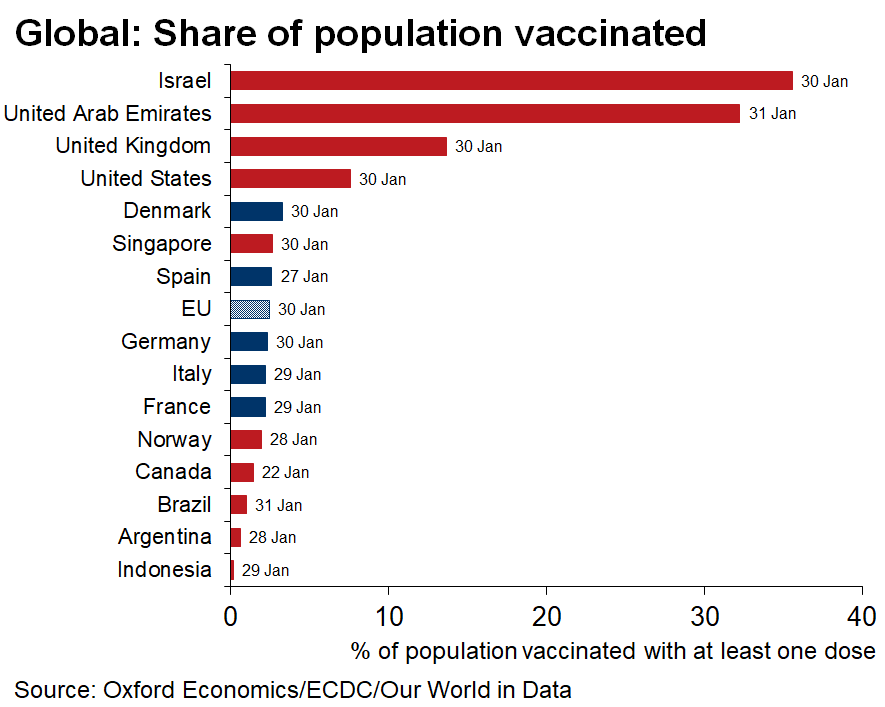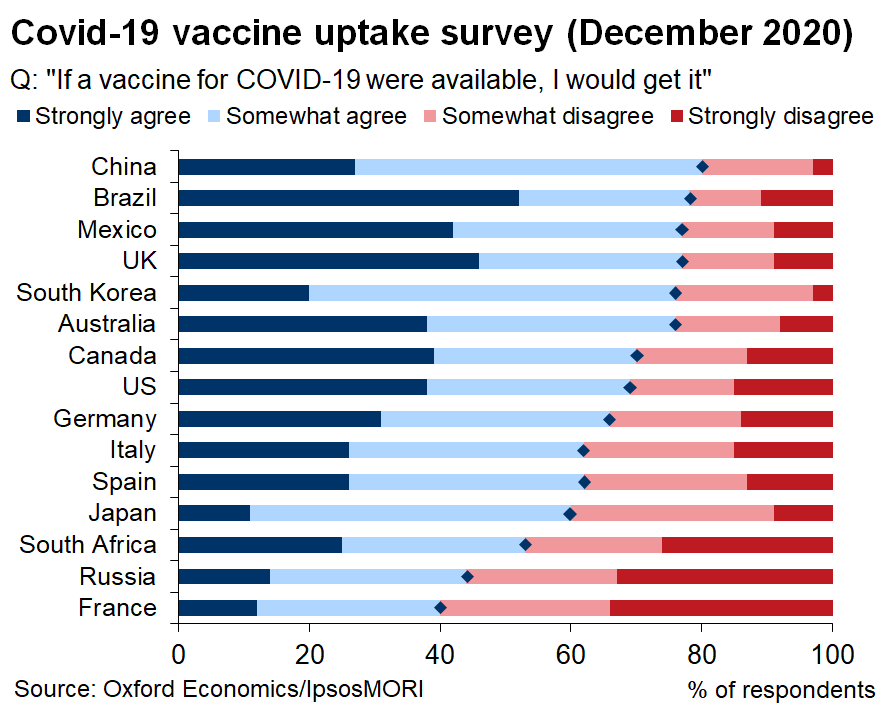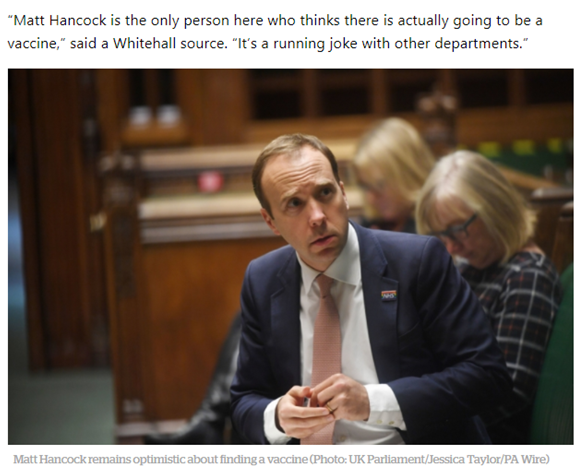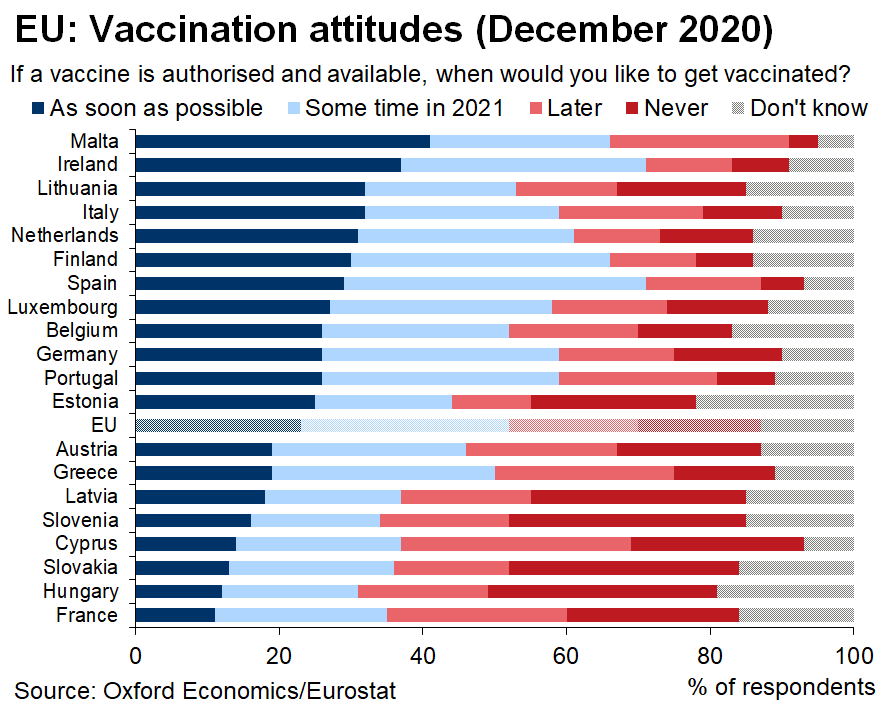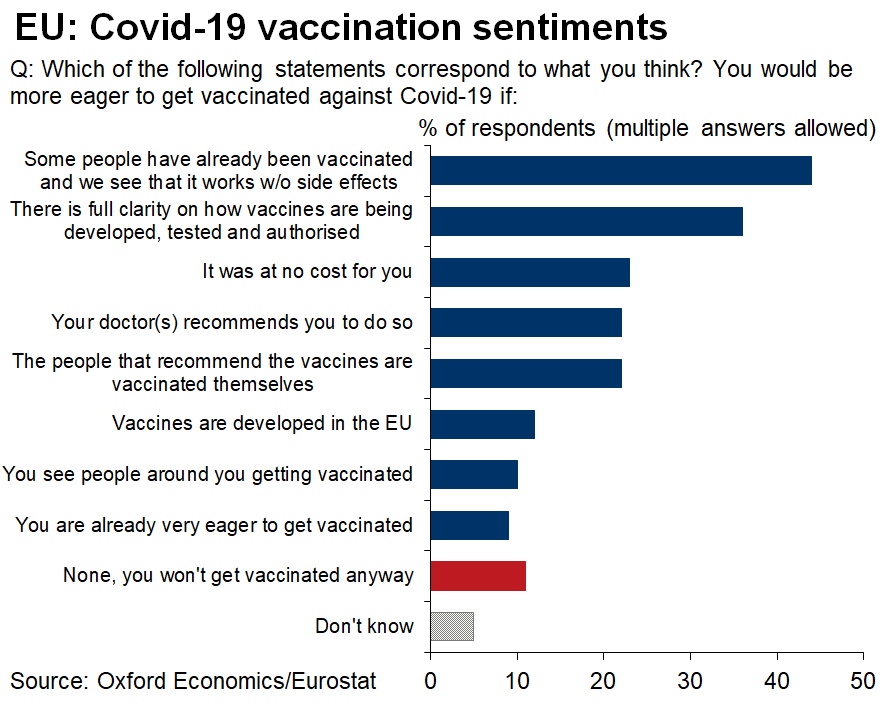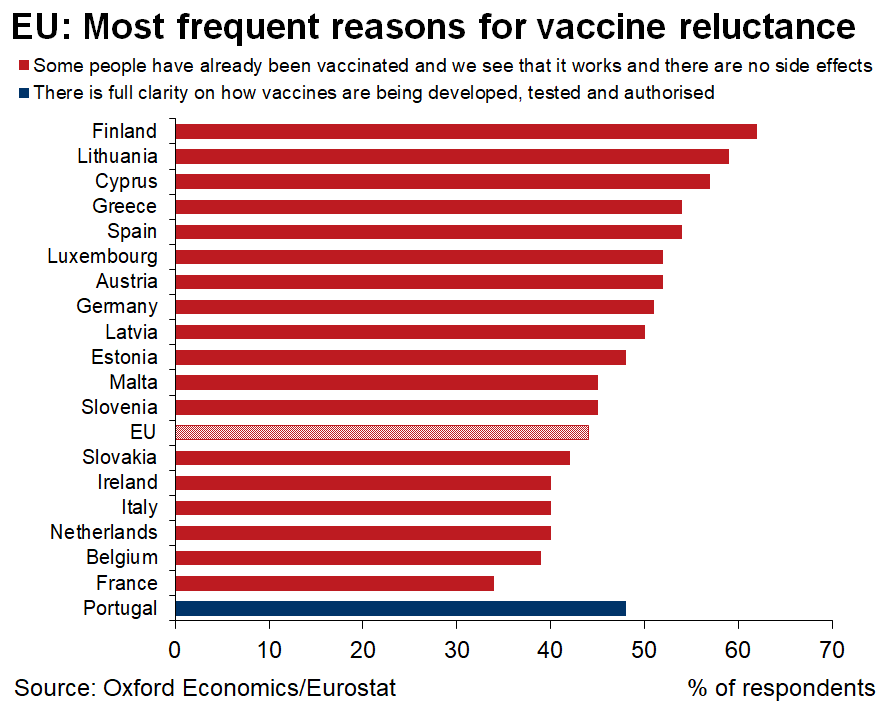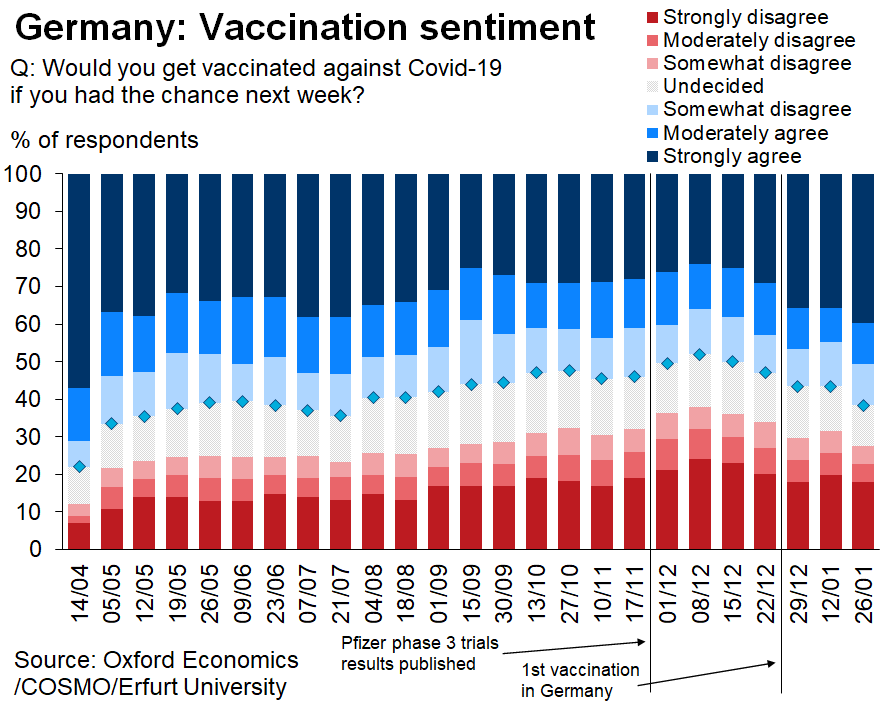Quick thread on one aspect of vaccination that currently doesn't quite make the headlines but is likely to become very important in the coming months - vaccine reluctance.
This different from the downright antivax sentiment a la Piers Corbyn, although they both pose a threat.
1/
This different from the downright antivax sentiment a la Piers Corbyn, although they both pose a threat.
1/
There are marked differences across countries in attitudes towards vaccination. In some sense, the UK got quite lucky here as the public is very strongly pro-vaccine - which I would attribute to government's power of persuasion.
https://inews.co.uk/opinion/columnists/matt-hancock-optimism-boris-johnson-under-siege-lockdown-measures-728616
2/
https://inews.co.uk/opinion/columnists/matt-hancock-optimism-boris-johnson-under-siege-lockdown-measures-728616
2/
Meanwhile, larger European countries and France in particular are doing very poorly, which makes Macron's recent public doubts about efficacy of the OxAZ vaccine look even more stupid. This is a part of the reason why the EMA didn't push ahead w/ emergency approval.
3/
3/
What are some of the reasons people are reluctant to get vaccinated? Again, it's a mix of distrust ("the vaccines were developed too quickly and they cut corners") and personal circumstances - laziness, low perceived risk etc.
4/
4/
The prevailing reason gives some hope, as people seem willing to get vaccinated if enough people get the jab *before* them. This is why it is so crucial to be transparent about the vaccination programmes and keep trying to inform the public sufficiently.
5/
5/
Why is this so important? To gain widespread protection from Covid-19, we need vaccine uptake to be large. Herd immunity thresholds are estimated to be around 65-85% (note the range is rather wide), although this crucially depends on two factors:
6/
6/
1) The transmissibility of the disease. With the emergent new strains being more transmissible (for the B117 UK variant, the estimated increase in R is 0.4-0.7), which pushes the herd immunity threshold upwards.
https://www.imperial.ac.uk/mrc-global-infectious-disease-analysis/covid-19/report-42-sars-cov-2-variant/
7/
https://www.imperial.ac.uk/mrc-global-infectious-disease-analysis/covid-19/report-42-sars-cov-2-variant/
7/
2) How effective vaccines are in preventing transmission. We know from clinical trials & early Israel data they are very effective in preventing severe disease & infection. It's also very likely that vaccines eliciting immune reaction this strong https://twitter.com/segal_eran/status/1356313705684869121?s=20
8/
8/
will have some impact on limiting transmission, but we don't quite know by how much. Interesting thread on this below. Less effective vaccines also push the herd immunity threshold upwards. https://twitter.com/AdamJKucharski/status/1353368784615202816?s=20
9/
9/
So a large proportion of population has to get vaccinated. So far, the progress is hindered more by supply, logistical or planning issues in most European countries rather than reluctance in uptake. But as we progress down the priority groups towards the younger & healthier,
10/
10/
this could become an issue as they perhaps perceive Covid-19 to be less of a risk to them. However, there's an obvious massive negative externality from such behaviour. 11/
It's difficult to say how will the sentiment evolve. Preliminary data from Germany offers some hope, as the willingness to get vaccinated has steadily improved since the Pfizer phase 3 trial results were published. Perhaps there could also be a "FOMO" effect.
12/
12/
But overall, reluctance to get vaccinated among the wider population is a critical issue that will start to become more & more central to the progress of the vaccination programmes as they go on, and the pool of people keen to get vaccinated gets smaller & smaller.
13/end
13/end

 Read on Twitter
Read on Twitter